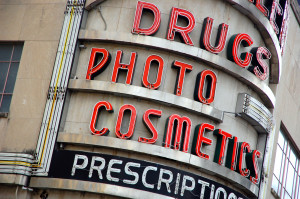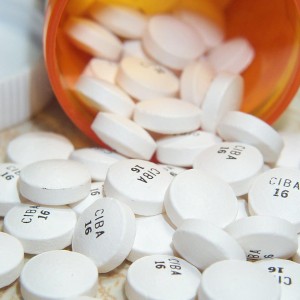Article Contributed By: Andrew Spanswick, MSW, MHA, CEO of KLEAN Treatment Centers, Co-host of KLEAN Radio
 Prescription drug addiction and overdose are issues largely hidden from the public. The rates of addiction for prescription drugs are on the rise at alarming rates. According to DrugAbuse.gov, an estimated 2.4 million Americans misused prescription medications to change their mood, and not for the intended use.
Prescription drug addiction and overdose are issues largely hidden from the public. The rates of addiction for prescription drugs are on the rise at alarming rates. According to DrugAbuse.gov, an estimated 2.4 million Americans misused prescription medications to change their mood, and not for the intended use.
The most vulnerable populations are the young, women, and the elderly, but all are susceptible.
Read more to discover the warning signs of prescription drug addiction.
Doctor Shopping
If a friend or loved one complains that his or her medications are not working quite like they were, or makes any indication that they may be seeking other doctors to renew their prescriptions, this might be a warning sign. When a person enters into an addictive cycle with any drug, they will start seeking more and better sources of supply.
In the case of prescription drugs, they may start ″doctor shopping,″ which is a violation of federal law.
Mystery Illnesses
When you notice someone perpetually feeling sick and calling into work with dubious excuses, keep tabs on them. Try to remember if they have been taking any prescription medications and what you know about that. If they are experiencing withdrawal from an opiate, sedative, or any other medications, they may, in fact, be feeling quite ill.
However, their sickness isn't likely to be cured by a day home from work.
Mood Swings
 If you notice a friend or family member acting erratically, with constant mood swings and outbursts that they might not normally exhibit, this could be a sign of addiction. An addict is prone to mood swings due to the fact that he is constantly changing the way he feels.
If you notice a friend or family member acting erratically, with constant mood swings and outbursts that they might not normally exhibit, this could be a sign of addiction. An addict is prone to mood swings due to the fact that he is constantly changing the way he feels.
If he is using an opiate, his feelings may be suppressed and might be expressed in a random fashion when the drugs wear off. A stimulant user may become paranoid and intensely high strung when high. Keep an eye out for these signs.
Personal Appearance Changes
Common signs of drug use include:
- Bloodshot eyes
- Dilated pupils
- Watery eyes
- Contracted pupils
Pay attention if your friend begins letting his appearance go with disheveled clothes and a sloppy manner, particularly if the person might have previously been neat and tidy. If you visit the person's home and find unwashed dishes and a general untidiness, this may be a sign.
Many addicts are known to become lax in their appearance, however the opposite may also be the case. Ritalin and Adderall addicts, for instance, may become acutely aware of any disorder at times but then noticeably lax about organization at other times.
Physical Symptoms
As addiction progresses, it is likely to manifest in physical symptoms. If your friend or loved one exhibits tremors or slurred speech, be on the lookout. Many opiate addicts can become listless and may ″fade out″ during a conversation.
This may be extreme or be as seemingly benign as forgetting words in mid-sentence. Addicts may also become accident prone, so unexplained cuts or bruises need to be taken seriously, particularly if the explanation behind the injury is suspect.
Financial Problems
 Sooner or later, an addict will begin to have financial difficulties. Note behaviors such as:
Sooner or later, an addict will begin to have financial difficulties. Note behaviors such as:
- Pawning expensive jewelry for no good reason
- Theft
- Excessive borrowing
Quite often, drug addicts have borrowed money from every available source and are unable to repay their loans.
This will cause disruptions in relationships, not to mention their overall financial picture. Look for signs such as:
- Applying for extra credit cards
- Gambling as a means for income
- The dogged pursuit of get-rich-quick schemes
Changes in Behavior
If someone you love is using prescription drugs to get high, they may begin sneaking out at night, running around with a different crowd of friends, or exhibiting other unusual behaviors. The addict may disappear for longer periods of time or act very moody and defensive. Take note of these changes in behavior.
Monitor Teen Prescriptions
 If your teen is prescribed an addictive drug, make sure you keep tabs on how it is used. Drugs such as Ritalin are almost sure to be addictive, but they become problematic when the addict begins upping the dosage or administering them in inappropriate ways, such as intravenously or by crushing and snorting the pills.
If your teen is prescribed an addictive drug, make sure you keep tabs on how it is used. Drugs such as Ritalin are almost sure to be addictive, but they become problematic when the addict begins upping the dosage or administering them in inappropriate ways, such as intravenously or by crushing and snorting the pills.
Inappropriate use of these drugs can lead to a higher tolerance and a demand for more. Consult a doctor if your teen is suddenly asking if his prescription can be increased or if there are signs that he is obtaining his drug through some other means.
Prescription drug abuse is at epidemic levels in the United States, and these addictions cause people to do unfortunate things. Arming ourselves with knowledge is one part of helping bring an end to this issue.
References:
- http://www.drugabuse.gov/publications/research-reports/prescription-drugs/trends-in-prescription-drug-abuse/how-many-people-abuse-prescription-drugs
